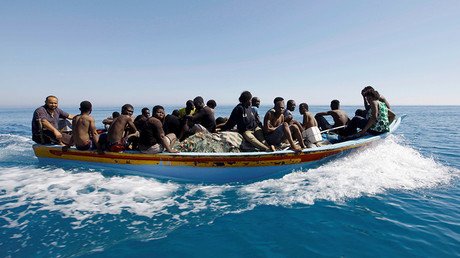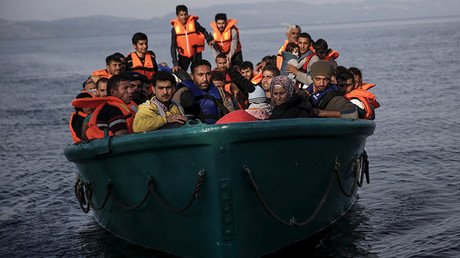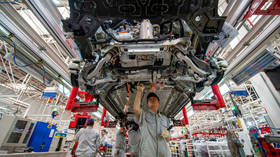‘We failed completely to break people smuggling in the Mediterranean’ – UK Lords’ inquiry author
While the EU must continue saving migrants fleeing by sea, it must eradicate people trafficking itself, the chairwoman of the UK House of Lords’ committee believes. This could be achieved by working with a Libyan government – if there weren’t three of them.
The EU-spearheaded Operation Sophia, launched in 2015 to stop human smuggling in the Southern Central Mediterranean and “prevent the further loss of life at sea,” has not only failed its goal but effectively led to an increase in people trafficking and deaths, according to a damning report released by the UK House of Lords’ EU External Affairs Sub-Committee on Wednesday.
“First of all, we need to look at why we’ve not been able to disrupt the smugglers’ business programs of smuggling people from countries such as Eritrea and Niger and other countries too, to take the treacherous journey, to go to Libya and then from Libya to get into very dangerous waters in very unseaworthy vessels,” the chairwoman of the committee which produced the report, Baroness Verma, told RT.
The search and rescue operations involving sophisticated vessels have actually played in the hands of people smugglers who adapted and effectively stopped from getting people to Europe, abandoning them in unseaworthy vessels in international waters.
“The migrant crisis has not decreased, but what’s happened of course is that once we intervened through operation Sophia with very sophisticated naval vessels the smugglers have decided to transfer the people, the trafficked people in the less safe vessels,” Baroness Verma said.
“And so they are taking them in these dinghies and then take them 30 or so kilometers away from Libyan shores and then just leave them there. And of course, that’s extremely dangerous. It therefore means that there’s a bigger pressure on the naval vessels to rescue people. And we failed completely to therefore break this model the smugglers are using.”
The goal for the report was not by any means to encourage the EU to stop rescuing people in the troubled waters, the Baroness stressed, but to combat the trafficking itself instead.
“We need to look at the problem at source, we need to look at the start of the pipeline rather than by the time the people have come to Libya and when they are getting into these unseaworthy vessels and trying to cross the Mediterranean. We need to be able to brake the model at source,” Baroness said.
“That’s why we recommend that in its current form the operation Sophia has failed. What we don’t say, and I would like to reinforce that is that the Committee doesn’t say not to save people. We do need to continue saving people that will take this risky journey.”
Trafficking eradication can be achieved through closer cooperation between the EU countries, as well as with the governments of the countries where the trafficking blooms, especially Libya. The three warring governments in Libya, however, does not make the objective easier.
“This is a problem for all of Europe,” Barones Verma stated.
“We also have to be able to work with the Libyan government, and at this moment in time we don’t have a Libyan government that we can constructively work with.”














